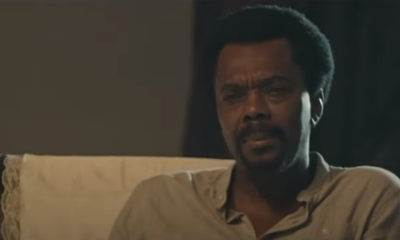News
Protecting the African Woman by Blurring the Gender Lines
 Oluremi Obasanjo’s ‘Bittersweet: My Life with Obasanjo’ is one of the essential African books. Not in the same breath as literary masterpieces like Achebe’s ‘Things Fall Apart’ or Adichie’s ‘Purple Hibiscus’ or biographical standard bearers like Soyinka’s ‘Ibadan: The Penkelemes Years’ or Ige’s ‘Kaduna Boy’ but an important book nevertheless.
Oluremi Obasanjo’s ‘Bittersweet: My Life with Obasanjo’ is one of the essential African books. Not in the same breath as literary masterpieces like Achebe’s ‘Things Fall Apart’ or Adichie’s ‘Purple Hibiscus’ or biographical standard bearers like Soyinka’s ‘Ibadan: The Penkelemes Years’ or Ige’s ‘Kaduna Boy’ but an important book nevertheless.
In the Nigerian climate where the dearth of books followed by a loss of first hand accounts of significant anecdotes, any contributions by those who were in the know in the early Nigeria would always be appreciated. Whilst I have a grouse with it in that it lacks depth on those issues, Mrs Obasanjo’s warts and all tale (published in November 2008) was a step forward for the African woman. Her ex husband, Olusegun Obasanjo still stands as the most powerful man in the country so her ability to stand defiantly in the face of the inevitable opposition is worthy of commendation. It’s probably the most enlightening piece of literature on the enigma that is Obasanjo.
At the time of publication, Reuben Abati wrote in ‘The Guardian’ “Bitter-Sweet is a cross between a romance tale, an autobiography, a testimonial and a kiss and tell thriller. No future biography of Obasanjo would be complete without a reading of Mrs. Oluremi Obasanjo’s Bitter-Sweet: My Life With Obasanjo.
What is that cliché again? The one about a scorned woman? “Hell hath no fury like a woman scorned.” I describe the tale as a victory for the African woman on the basis that it is the first work of note to document a disease that plagues us in this part of the world: Disrespect to women thus encapsulating the notion that they are second class citizens. It gives some insight into the psyche of the woman who gets involved with a man who grows to become powerful and wealthy whilst still at the ordinary stage of his life. It captures the evolution from a caring and anciently romantic man to an aggressive, pompous, womanizing and occasionally abusive leader. Imagine the uproar if it came out that a Western world leader chased after a woman with a knife on the streets threatening to kill her. Even worse, imagine that woman was the mother of his children and his wife.
For so long, we have accepted the mindset that domestic violence was one of those evils which we ignored and acted like it didn’t exist. Mrs Obasanjo no saint like the rest of us, documented this evil on a significant scale.
At the risk of feeding the notion of the single story, I write this article as a letter of appreciation to the African woman. The barriers she has to fight placed in her path by the uber patriarchal African society are a great cause for worry and self searching. The very lucrative soft sell publishing industry regale us with tales of how men terrorize their wives with needless displays of masculinity in a bid to soothe their egos. That’s not all. As the story goes, banks and their corporate siblings are also guilty for helping propagate this. They employ sexually appealing women giving them outrageous targets and threatening to fire them if they can’t attain them whilst pairing them with the stereotypical older, wealthy man with a voracious sexual appetite. I’ll be willing to bet that their male counterparts don’t have this to contend with.
The African woman faces a lot of challenges borne by the society we live in. When women are abused and this reaches the public domain, it’s the norm to meet them with skepticism. “You sef, what did you do that he beat you black and blue?” It’s like she should be apologetic for even having the misfortune of her husband’s hands kissing her face.
Things have gotten better. Our women have the right to vote and have been found in more influential positions, part of the legacy of the Aba Women’s Riot of 1929 when South Eastern women came out en masse to protest against their patriarchal government and seek an increased stake in the governing process. They were largely successful then. 84 years later, we need to push on. Sanctions should be brought against organizations guilty of taking undue advantage of their women workers. Men guilty of domestic violence should also be punished.
Women shouldn’t be ashamed of speaking out. They should be supported and not told to “Deal with it” or “Just manage”. The outrage when the mutilated body of Titilayo Omozaje Arowolo was found with her husband currently facing legal action for it was a good thing. We shouldn’t be satisfied with that. We should push on and confine those sexist attitudes to the coffins they belong.
Photo credit: 123rf.com
_________________________________________________________________________________________
Oluwamayowa Idowu is a writer and essayist. The rest of his work can be found at http://mayowaidowu.com. You can also follow him on Twitter: @MayowaIdowu
























